Is Pineapple An Effective Remedy For Constipation?
Get your facts right before you count on this fruit to improve your gut health.

Image: Shutterstock
Experiencing constipation daily can be uncomfortable and occurs when the waste moves too slowly through the digestive system, making it harder to pass the stools. If you want to throw the laxativesi out of the window and go for natural remedies, try drinking some pineapple juice as a stool softener to get rid of your constipation. In this article, we explore some of the reasons why this tropical fruit juice is good for saying goodbye to constipation.
 Know Your Ingredient: Pineapple Juice
Know Your Ingredient: Pineapple JuiceWhat Is It?
A tropical fruit with an inedible spiky outer covering and tangy yellow edible flesh.
What Are Its Benefits?
May help with constipation, bloating, gas, and loose motion.
Who Can Use It?
Generally safe for consumption by all except those with a pineapple allergy.
How Often?
Have 1-2 glasses of pineapple juice a day to relieve constipation.
Caution
Excess consumption may lead to stomach issues like abdominal cramps, vomiting, nausea, and diarrhea.
In This Article
Constipation – A Brief
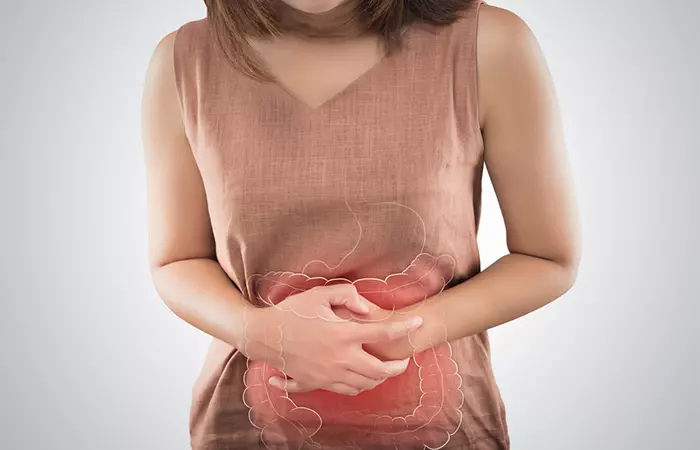
The most common causes of constipation include diets that are low in fiber, a sedentaryi A lifestyle or career that is not particularly physically active, is characterized by a lot of stagnation, and eventually leads to obesity. lifestyle, dehydration, ignoring urges to go to the bathroom, certain medications, etc. (1). One of the best ways to treat this problem naturally is to increase dietary fiber intake through fruits like pineapples, which provide soluble and insoluble fiber essential for regular bowel movements. This is a delicious way to gain many wonderful health benefits, including making your bowel movements regular and smooth.
A study published on the American Journal of Gastroenterology, which was conducted on 4702 participants found that 37.6% people discussed their issue with their doctor, 93.5% were taking over-the-counter medication, 1.3% participants were taking prescription medication, and 5.2% subjects were taking both over-the-counter and prescription medication.
 Trivia
TriviaKey Takeaways
- A low-fiber diet, dehydration, and certain medications are a few causes of constipation.
- Pineapple is a rich source of dietary fiber, which helps in bulking up stools and boosting bowel regularity.
- It contains the enzyme bromelain, which may help in digestion by breaking down protein.
- Children can drink half a cup and adults 1 glass of pineapple juice along with a glass of water daily.
- Consume high-fiber foods like whole grains, legumes, apples, and flax seeds to help relieve constipation.
Pineapple Juice For Constipation

You may have heard how effective pineapple juice is for treating constipation, but does pineapple make you poop, or is it just a hoax? It acts as a natural laxative that does wonders in regulating your bowel movements (2). There is nothing better than a glass of fresh pineapple juice first thing in the morning to help ease constipation (3). As mentioned earlier, major causes of this problem include not getting enough dietary fiber and dehydration. Pineapple is rich in fiber, which is why it is an effective natural remedy for constipation.
According to the U.S. Department of Agriculture, you get 8 ounces of fluid and 0.5 grams of fiber in one cup of pineapple juice (4). It is recommended to have at least 20 to 35 grams of fiber, and at least 64 ounces of fluids every day to get relief from constipation. Pineapple also has natural plant enzymes, including bromelaini An anti-inflammatory enzyme that can be found in pineapples that breaks down other proteins, including collagen and muscle fiber. , that play an important role in improving bowel function due to its anti-inflammatory property (5). Pineapple contains vitamin C, beta carotene, and flavonoids which are antioxidants. By using pineapple juice as an alternative to stimulanti A substance that temporarily increases an organism's activity or a section of its functional activity or efficiency. laxatives, you avoid abdominal pain, bloating, gas, and loose motions.

As already mentioned, fresh pineapple juice, which is unstrained, is best because it is rich in soluble fiber (6). However, you need to keep in mind that it can also be dehydrating, and this can in turn can cause constipation. This is why experts recommend drinking plenty of water after consuming this healthy drink. Water is also important when you want relief from constipation, and hence, a combination of juice and water does you a lot of good.
How Many Glasses Of Pineapple Juice Should You Drink?

It is important to know exactly how many glasses of pineapple juice you should take to get relief from constipation. According to experts, children who suffer from mild cases of constipation should be given half a cup of pineapple juice every morning (7). Adults should drink a glass of juice with a glass of water to boost hydration. If you still do not gain relief, you should drink another glass.
Comfort, a blogger, shares her enthusiasm for fresh pineapple juice in one of her blogs and describes how combining it with other ingredients can make for a great tropical drink: “I’ve always considered a plain pineapple or plain beet juice quite bland but when you combine them together with two other superfoods; root ginger and lemon, the result is this incredibly delicious, nutritious, healthy, refreshing tropical delight (i).”
You can drink pineapple juice before or after meals to help in relieving constipation. You can also drink it with your meals. For many people, sipping pineapple juice slowly throughout the day has provided excellent results and helped them get rid of constipation quite quickly.
Treating Constipation Naturally
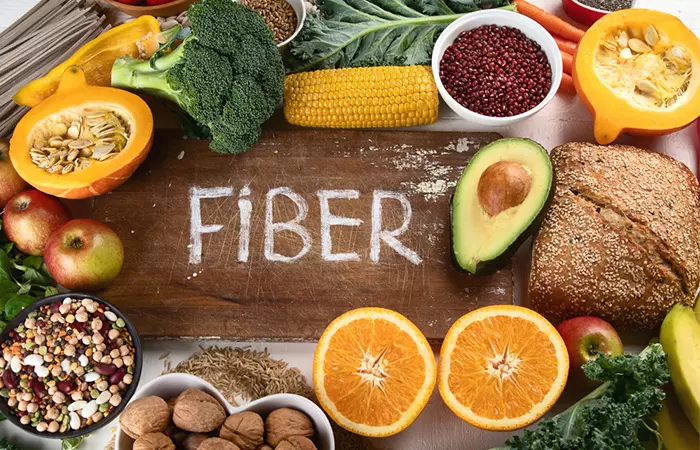
Including high-fiber foods in your daily diet is highly effective and provides you with loads of other health benefits (8). Other foods that you should increase in your daily diet to help in relieving constipation are whole-grain bread, bran cereal, legumes, green leafy vegetables, figs, raspberries, blueberries, apples, flaxseeds, etc. (9). These are all high-fiber foods that can effectively treat your condition naturally (10). There is nothing better than treating constipation with natural methods as they are safer and also highly effective.
 Trivia
TriviaInfographic: Pineapple For Constipation
Constipation is one of the most common digestive issues that more than half of the world’s population deals with. But the good news is that pineapple can help. Check out the infographic below to learn how you can use pineapple for constipation, how much of its juice you need to drink, and other healthy foods that offer a similar benefit.

Illustration: StyleCraze Design Team
Pineapple juice for constipation works effectively by regulating boweli The lengthy tubes that are located in the abdomen, and are responsible for finishing the digestive process. movements as it has laxative properties. The benefits of pineapple extend beyond just easing constipation; it is rich in fiber (both soluble and traces of insoluble fiber), which helps manage digestive health. Additionally, bromelain, an enzyme present in pineapple, improves bowel function. Pineapple juice also eases abdominal pain, loose motions, bloating, and gas. Having 1-2 glasses of pineapple can provide relief from constipation. For kids, giving half a cup of this juice can relieve constipation. However, having it in moderation helps reap the benefits as excess consumption of pineapple juice may aggravate constipation. Hence caution is advised.
Frequently Asked Questions
Is it safe for pregnant women to consume pineapple juice?
Yes, pineapple juice is generally safe for pregnant women in moderation. However, it is best to consult with a healthcare provider before making significant dietary changes during pregnancy.
Can we drink pineapple juice on an empty stomach?
Yes, you can drink pineapple juice on an empty stomach to better absorb the nutrients and enzymes present in the juice. Anecdotal evidence suggests that though pineapple juice is acidic, it has an alkalizing effect on the body once ingested and digested.
Is pineapple juice healthy for you?
Yes. Pineapple juice is rich in vitamin C, vitamin B6, manganese, copper, and enzymes that have beneficial effects on the body. It also has moderate quantities of potassium and magnesium.
Can I mix pineapple juice with other juices for constipation relief?
Yes. Some of the best juices to relieve constipation include prune juice, pear juice, and apple juice. You can try mixing these juices together or individually with pineapple juice in proportions suitable for your taste for constipation relief.
Should I drink fresh or canned pineapple juice for constipation?
Fresh pineapple juice is preferred as it may contain higher concentrations of active ingredients like bromelain enzyme and would be devoid of added sugars and preservatives.
Illustration: Is Pineapple An Effective Remedy For Constipation?

Image: Stable Diffusion/StyleCraze Design Team
Learn how to prepare pineapple to naturally relieve constipation. Watch this informative video to discover the benefits of pineapple and easy methods to incorporate it into your diet for digestive health.
Personal Experience: Source
StyleCraze's articles are interwoven with authentic personal narratives that provide depth and resonance to our content. Below are the sources of the personal accounts referenced in this article.
i. Beetroot and Pineapple Juicehttps://kooqing.wordpress.com/2020/03/24/beetroot-and-pineapple-juice/
References
Articles on StyleCraze are backed by verified information from peer-reviewed and academic research papers, reputed organizations, research institutions, and medical associations to ensure accuracy and relevance. Read our editorial policy to learn more.
- Chronic constipation
https://www.ncbi.nlm.nih.gov/labs/pmc/articles/PMC5976340/ - International Journal of Science and Knowledge Quality evaluation and storage properties of yoghurt supplemented with pineapple juice
https://www.researchgate.net/publication/309903458_International_Journal_of_Science_and_Knowledge_Quality_evaluation_and_storage_properties_of_yoghurt_supplemented_with_pineapple_juice - Fruit bromelain ameliorates rat constipation induced by loperamide
https://www.researchgate.net/publication/319983766_Fruit_bromelain_ameliorates_rat_constipation_induced_by_loperamide - Pineapple juice canned or bottled unsweetened without added ascorbic acid
https://fdc.nal.usda.gov/fdc-app.html#/food-details/169947/nutrients - Treatment with oral bromelain decreases colonic inflammation in the IL-10-deficient murine model of inflammatory bowel disease
https://pubmed.ncbi.nlm.nih.gov/15936249/ - In vitro bacterial fermentation of tropical fruit fibres
https://pubmed.ncbi.nlm.nih.gov/23887033/ - Constipation in Children and Young People: Diagnosis and Management of Idiopathic Childhood Constipation in Primary and Secondary Care.
https://www.ncbi.nlm.nih.gov/books/NBK65356/ - Diets for Constipation
https://www.ncbi.nlm.nih.gov/pmc/articles/PMC4291444/ - Effect of a very-high-fiber vegetable fruit and nut diet on serum lipids and colonic function
https://www.researchgate.net/publication/12045973_Effect_of_a_very-high-fiber_vegetable_fruit_and_nut_diet_on_serum_lipids_and_colonic_function - High-fiber diet for treatment of constipation in women with pelvic floor disorders
https://pubmed.ncbi.nlm.nih.gov/18378750/ - Chronic constipations
https://www.ncbi.nlm.nih.gov/labs/pmc/articles/PMC5976340/ - International Journal of Science and Knowledge Quality evaluation and storage properties of yoghurt supplemented with pineapple juice
https://www.researchgate.net/publication/309903458_International_Journal_of_Science_and_Knowledge_Quality_evaluation_and_storage_properties_of_yoghurt_supplemented_with_pineapple_juice
Read full bio of Nilofar Pendhari
Read full bio of Jyotsana Rao
Read full bio of Arshiya Syeda
Read full bio of Himanshi Mahajan






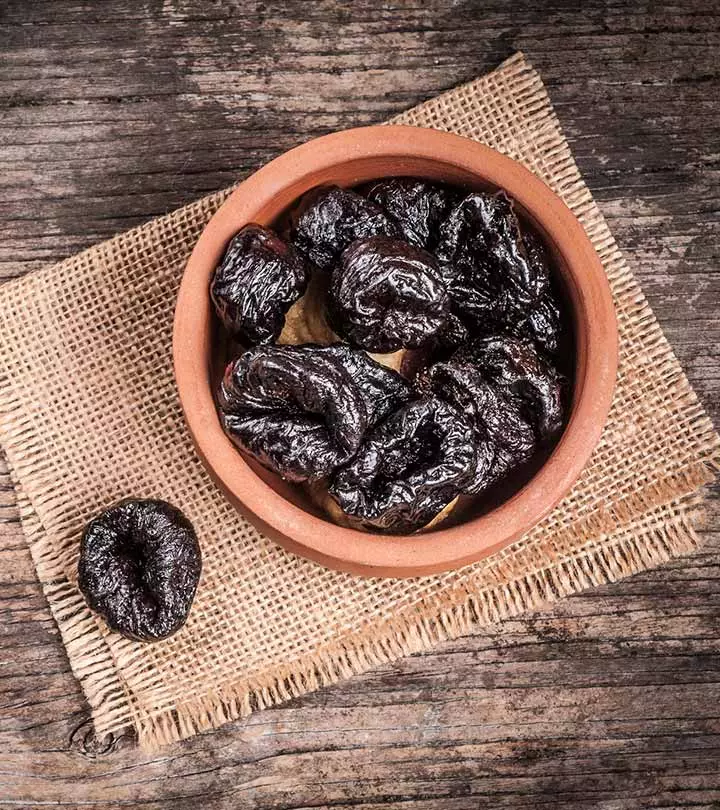
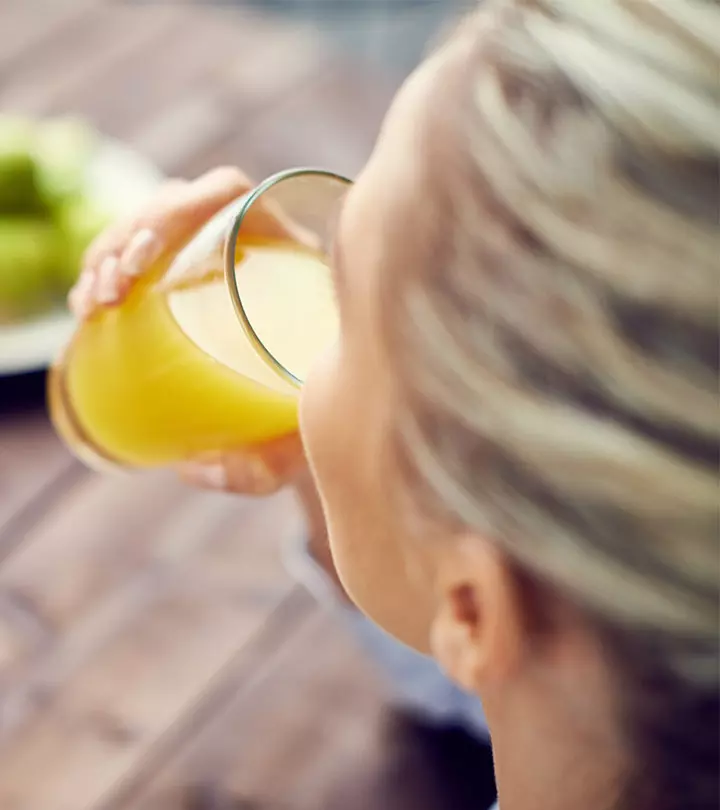
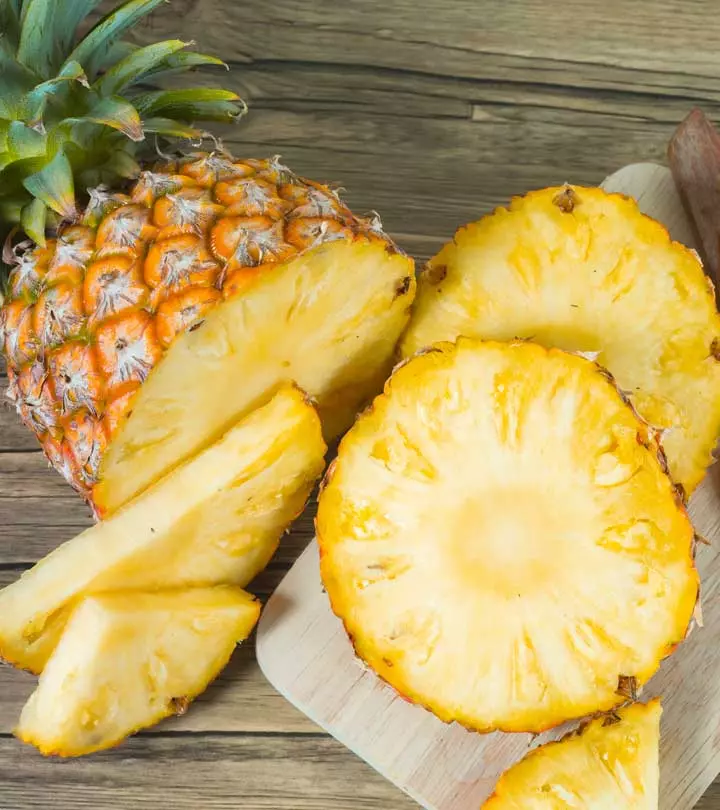


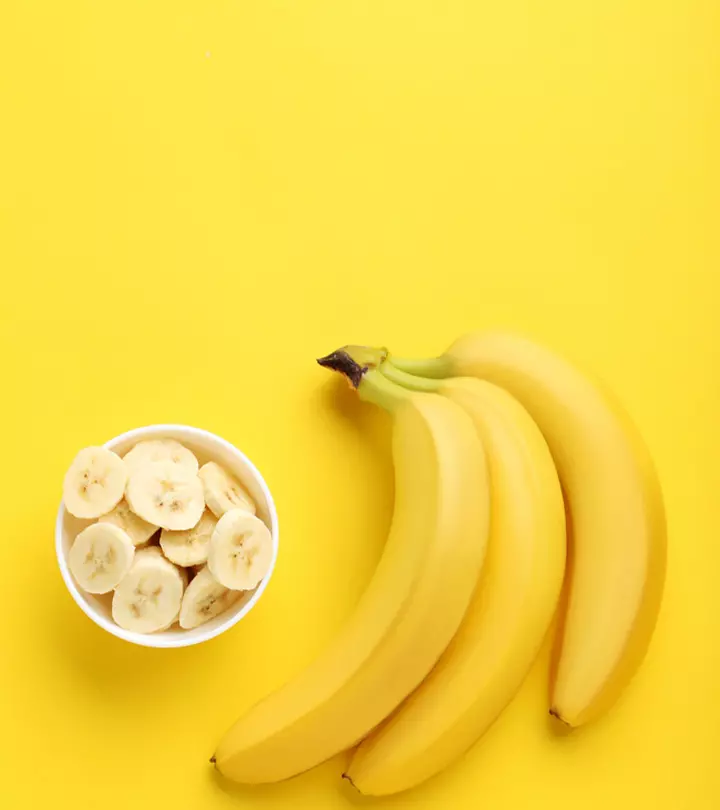
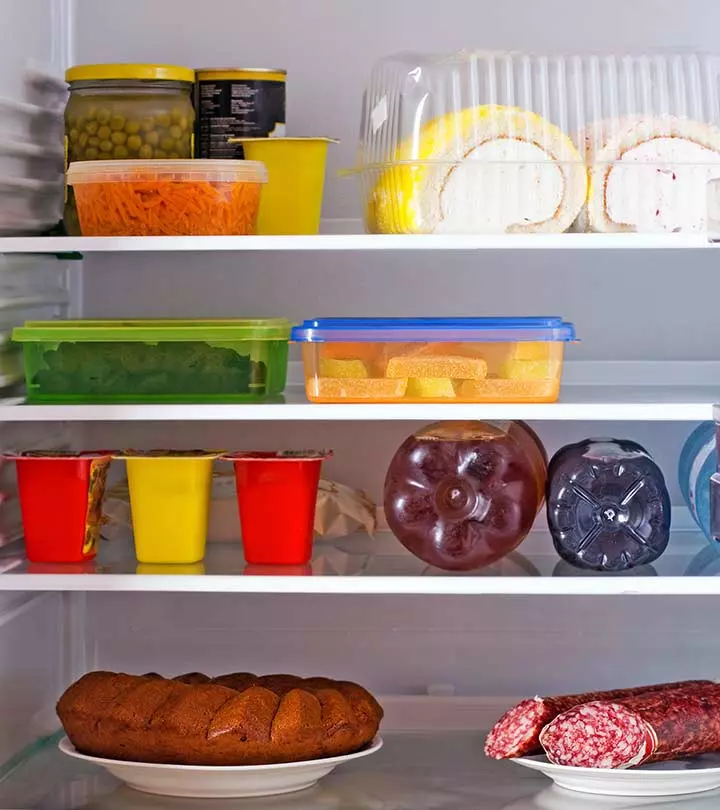
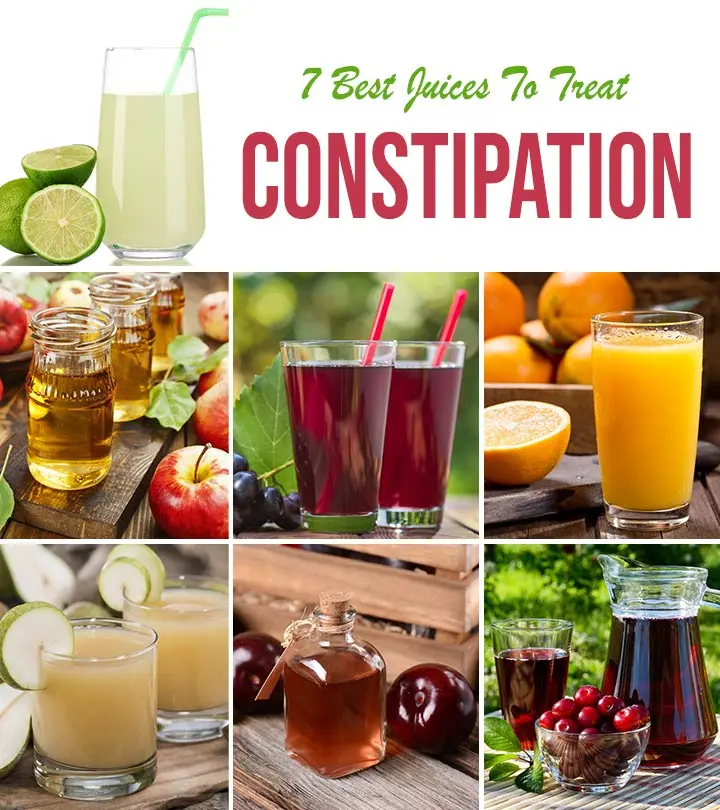











Community Experiences
Join the conversation and become a part of our empowering community! Share your stories, experiences, and insights to connect with other beauty, lifestyle, and health enthusiasts.